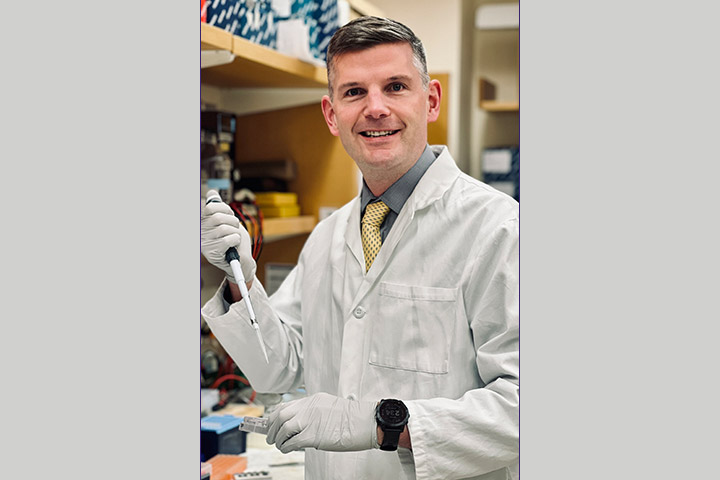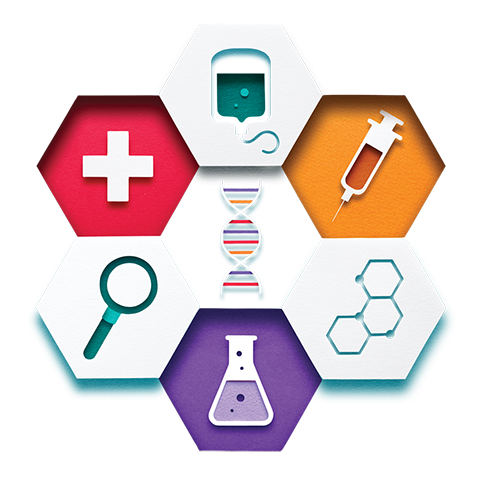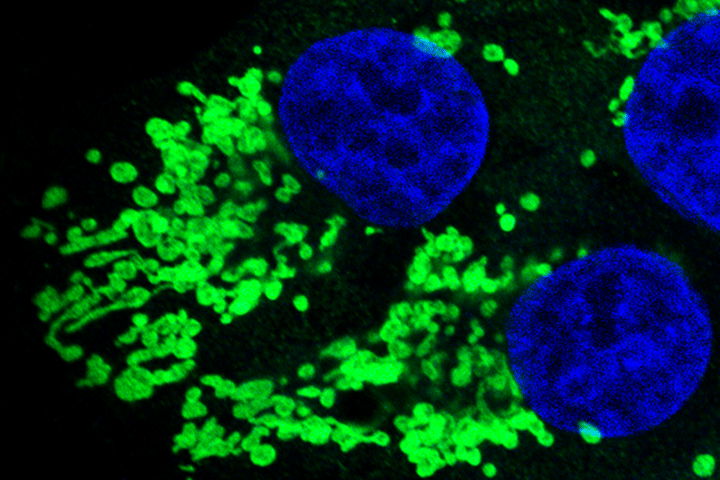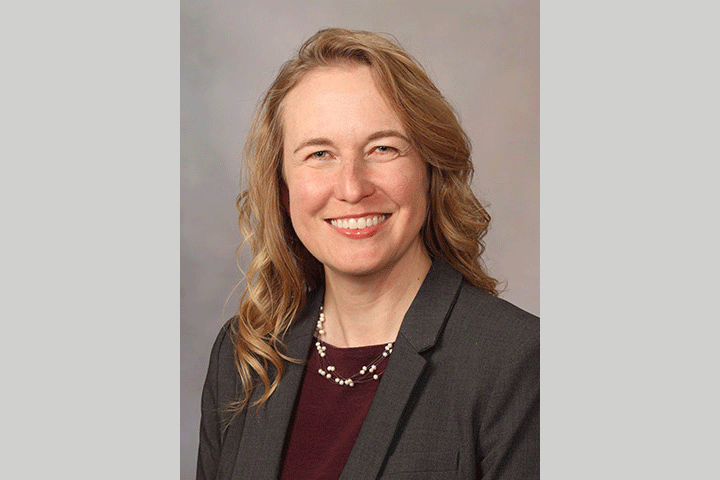Meet the Researcher: Jeffrey Patterson-Fortin, M.D., Ph.D.

Early career investigators pave the way for future breakthroughs in pancreatic cancer treatment.
At the 2022 AACR Special Conference: Pancreatic Cancer, Let’s Win supported the attendance of four early career scientists. Our featured researcher this month is Dr. Jeffrey Patterson-Fortin.
The Importance of DNA Damage Repair
To ensure survival and growth, our cells need to replicate. A big part of this continual process is called the DNA damage response. This biological system recognizes and repairs erroneous insertions and deletions, among other tasks, of the so-called bases that make up our DNA. Those bases are adenine, thymine, cytosine, and guanine, or ATCG. But sometimes this complex machinery goes awry and can lead to cancer.
Some cancer cells create many mutations in DNA when their DNA damage response is unable to correct mistakes made when DNA is copied. Those defective genes can cause both inherited and noninherited forms of cancer. And today they are used as biomarkers for diagnostic screening and treatment planning.
Physician–scientist Jeffrey Patterson-Fortin, M.D., Ph.D., has always been fascinated by DNA and how those four bases—A, T, C, and G—form a living organism. “My background is in DNA damage repair,” explains gastrointestinal oncologist Patterson-Fortin of the Dana-Farber Cancer Institute (Boston). “It’s an underlying cause of cancer and makes cancer vulnerable to therapies. And that’s something we need to explore and exploit.
“I was always interested in DNA and cancer biology. It’s really very interesting that when things go right our DNA has the fascinating ability to make copies of itself that ensure when a cell divides, the new cells contain exact replicas of the DNA from the original cell.”
Translating Research to Clinical Care
Patterson-Fortin received his medical degree from the Schulich School of Medicine & Dentistry at the University of Western Ontario, Canada, and his Ph.D. from the University of Pennsylvania (Philadelphia). He completed his residency training in internal medicine at Johns Hopkins Hospital (Baltimore, Maryland), followed by a medical oncology fellowship at the Dana-Farber Cancer Institute. Patterson-Fortin conducts research in the laboratory of Dr. Alan D’Andrea at the Dana-Farber Cancer Institute. His research focuses on exploiting DNA damage repair pathways, with particular emphasis on therapeutic approaches for pancreatic cancer.
Like many others who specialize in cancer treatment and research, Patterson-Fortin has personal experience with the disease. Back in 1993 when Patterson-Fortin was just a young boy, his father was diagnosed with thyroid cancer. His father underwent surgery, and everyone thought he was cured. But cancer is a tricky beast. “Right when I was starting my Ph.D., the cancer came back and had metastasized,” Patterson-Fortin says. “It was devastating, and I wanted to see if what I was learning in the lab in terms of molecular biology could help us better understand and then treat cancer.”
It was during this time that Patterson-Fortin studied ubiquitin targeting and editing in cellular responses while on a Canadian Institutes of Health Research fellowship. He was first author on multiple papers on the BRCA1-A complex and made major advances towards understanding how JAMM domain DUB activity is regulated at the biochemical and cellular levels. He completed his thesis in 2011.
Pancreatic cancer, especially when metastatic, desperately needs new treatments, Patterson-Fortin says. “It’s just such a tough disease, and we need new therapies,” he says. “There really have not been any major improvements in treating metastatic disease since about 2011, and that’s not acceptable.”
But he is confident positive change is coming. “One of the most important things we need is earlier detection, because, unfortunately, most patients are diagnosed when surgery is no longer an option,” he explains. “But I’m confident we are moving in the right direction. Research today is showing how immunotherapy may help our patients, which will be incredible since it has made such a positive impact on some other hard-to-treat cancers, giving patients the opportunity for long-standing disease-free periods. There are more resources being devoted to pancreas cancer research, too. And that can make a huge difference for our patients. So I am hopeful.”
When he’s not working in the lab or caring for patients, Patterson-Fortin enjoys the great outdoors. He’s an avid runner and has participated in both half-marathons and marathons. And when he’s not pounding the pavement with his feet, you can find him and his wife Jessica road cycling throughout New England. “I really enjoy cycling, but my wife is fairly new to it,” he says. “She got into it during the height of the pandemic and found out she really enjoys it, too.”






